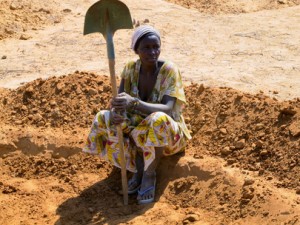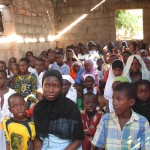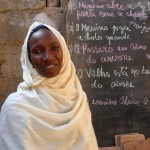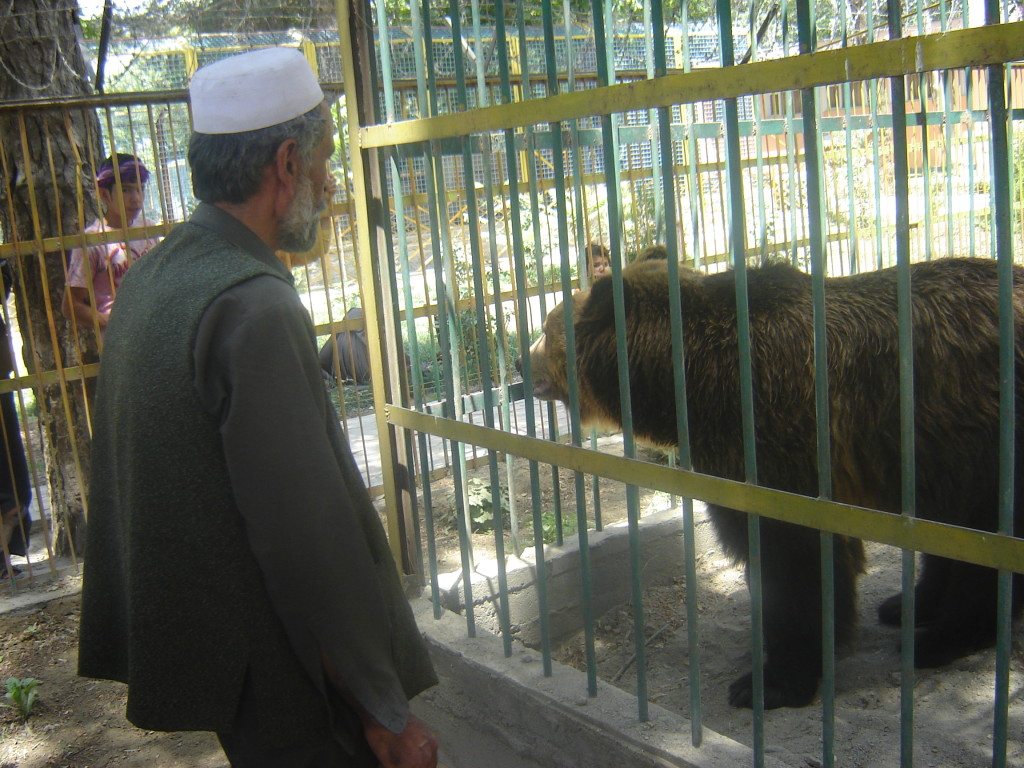Shah Barat was a zookeeper at the Kabul Zoo when Taliban fighters marched into the city. As tens of thousands fled he stayed on to look after the animals in the zoo. In this testimony*, Shah Barat remembers the zoo’s former glory and subsequent devastation.
Before the Taliban took over [...]]]>
Shah Barat was a zookeeper at the Kabul Zoo when Taliban fighters marched into the city. As tens of thousands fled he stayed on to look after the animals in the zoo. In this testimony*, Shah Barat remembers the zoo’s former glory and subsequent devastation.
Before the Taliban took over the city in 1996, Kabul Zoo was home to 37 species. There was Marjan, the zoo’s much-loved lion, an Indian elephant, deer, birds and numerous other animals.
Taliban fighters killed some for food. A few more escaped and were never traced. The zoo, which was established in 1966, and counted as among Asia’s best, was ravaged by war. That some of the animals survived was due to the dedication of zookeepers like Shah Barat.
“I suffered many hardships, hunger and danger, but I did not let the animals in the zoo go hungry,” he says. “They are also the creatures of God and goodness to them is counted as being good in the eyes of God. Unfortunately the hard hearted people turned their guns on these dumb creatures.”
The young Shah Barat had sought employment in the zoo because of his love for animals from childhood. “I had a special sympathy for the animals in my village,” he says. “I had kept many in the house. Villagers knew me as an animal lover. When I saw a sick dog, I would take care of it. Actually my house was a small zoo!”
Ruined by war
Kabul was far from his village in Andar district, Ghazni province, but Shah Barat was determined to work only in a zoo. In 1988, he joined the Kabul Zoo. Five years later, at the time of the first major exodus of civilians from Kabul, he was considered one of the senior zookeepers with many staff members fleeing the incessant bombing by rival mujahedin factions jockeying for control. The mujahedin had formed the government after toppling the communist Najibullah regime in 1992. But the power-sharing arrangement was short-lived, and between 1993 and 1996 when the Taliban took over Kabul, power continuously shifted from one faction to the other.
“Every time a rocket was fired the animals were traumatised,” he recalls. “I never thought the great Kabul Zoo would be turned so soon into a ruin!”
The civil war years were a time when people cowered in their houses from fear, according to Shah Barat. The price of everything was sky high. Salaries were not paid on time, and when they were, it wasn’t enough for even a week. Still, the zoo keepers bought rations for the animals out of their own meager resources. “I kept my 10 children and wife hungry, but the animals were never hungry,” he says.
He speaks particularly warmly about his relationship with Marjan (meaning coral in Dari and Arabic), the zoo’s only lion. “Marjan was a gift from the Cologne Zoo. People came from all over the country to see him. He was our only source of income,” he recalls.
The zoo’s fortunes further dipped with the Taliban takeover of the city. The fighters showed no mercy for the animals, as groups of gunmen entered the zoo to tease and shoot.
Cruelty to animals
He remembers the day a gunman foolishly entered the lion’s enclosure and was torn to pieces. The next day his friends returned and threw a grenade in Marjan’s den. The unsuspecting lion was horribly maimed. “Marjan became blind in one eye. His jaw was full of shrapnel. He lost several teeth, which meant that he could not tear the meat he was fed. He couldn’t smell. He lived for another 10 years but he was a pale shadow of his former regal self,” he says.
He fondly remembers a monkey that was a gift from Nepal. She had become tame in the zoo and would even “eat her food with a spoon much to everyone’s delight,” he says. When the war broke out, and rockets rained from the sky, the caged animals were frantic with fear. “The war made her wild, and she escaped,” he says of the monkey.
When one day a bomb landed on the deer enclosure, he ran to see the damage, only to find that “All the deer were bathed in their blood.”
A rocket killed the zoo’s sole elephant.
After U.S. troops drove out the Taliban at the end of 2001, the horrendous abuse of animals was widely reported. The one-eyed lion Marjan became world famous and many zoos and organisations sent teams of experts to help rehabilitate the zoo.
Marjan died in January 2002. Shah Barat, now 55, still works for Kabul Zoo, earning 6,000 Afs (roughly 110 USD).
*Noor Wali Saeed Shinwarai writes for Killid, an independent Afghan media group in partnership with IPS. By distributing the testimonies of survivors of war through print and radio, Killid strives for greater public awareness about people’s hopes and claims for justice, reconciliation and peace across Afghanistan.
]]>Not only is women’s personal development hampered by disproportionate water-collection duties, their [...]]]>
Not only is women’s personal development hampered by disproportionate water-collection duties, their limited access to productive resources (because of gender discrimination), including irrigation, also causes lower food production overall and thus hunger in developing countries.
You want a side of statistic with that? No problem.
Investing in women-owned agriculture businesses could bring the number of the world’s hungry down by 100 to 150 million people.
Sit with that number for a second and then continue reading.
As Thalif Deen recently reported (reiterated yesterday by Lakshmi Puri, deputy executive director of UN Women) women spend more than 200 million hours per day collecting water.
That’s 40 billion hours per year.
71 percent of the water collection burden falls on women and girls.
We all know the popular media image of women water bearers, but the development loss that occurs for women in that act is rarely quantified.
Women’s disproportionate burden of fetching water limits their personal development, productive capacity and community engagement, including school attendance, market activity and their involvement in local leadership and decision-making.This also has negative effects on building and maintaining peace.
Progress has been made on improving secure water supplies in developing countries and reducing walking distances, but “783 million people still remain without access to an improved source of drinking water,” according to Puri.
She emphasised that “Creating a water- and food-secure world requires putting women and girls at the centre of water and food related policies, actions and financing.”
Rather than seeing women as “beneficiaries of greater water and food security,” they ought to be seen as contributors to greater progress.
Puri lists four urgent actions to “unleash their potential” [emphasis and formatting mine]:
1. Women need to be recognised as water managers, farmers and irrigators, who contribute to ensuring sustainable food production and consumption and to safeguarding the environment.
This must be done in laws, policies and through social awareness programmes in communities.
2. Governments and other partners need to ensure that women are empowered along the water and food supply chain, so that their food production and water management roles are supported.
Improvements in infrastructure services— especially water and electricity—can help free up women’s time spent on domestic and care work. […]
3. We need to address the multifaceted gender discriminations in accessing and controlling productive resources.
Women must be provided with technical training on water management, irrigation, rainwater harvesting, and rain-fed agriculture.
4. Women must be recognised as decision-makers in water governance.
This involves reducing membership fees and broadening the mandate of irrigation schemes to acknowledge and include multiple water users.
]]>
As I reported last month, [...]]]>

UN Photo/WFP/Phil Behan
As Beyonce’s video celebrating World Humanitarian Day continues to make its rounds through the internet, humanitarian workers on the ground in the drought-affected Sahel arguably have bigger fish to fry as they try to stave off deteriorating conditions in Niger and Mali amidst staggering shortages in relief funding.
As I reported last month, the United Nations Office for the Coordination of Humanitarian Affairs (OCHA) recently adjusted its needs projections for 2012 upward in light of what can be called a foreseeable escalation of the food crisis in the Sahel that started last fall.
Now it looks like cholera and locusts are further foiling already underfunded relief efforts across West Africa.
With four months left to the year, only 51 percent of the funding goal for the region has been met according to latest numbers by the U.N.’s Financial Tracking Service.
So far, an estimated 19 million people in the region are in dire need of assistance, many of whom were expected to rely on emergency food aid as primary means of sustenance by August.
In a special humanitarian bulletin on the Sahel crisis published last week, OCHA now warns of a developing locust infestation that could affect another 50 million people and diminish yields in the upcoming October harvest.
“Desert locust infestation remains dangerous as more egg-laying and hatching are expected in the coming weeks. Agricultural crop production, food and nutrition security, and the livelihood of some 50 million people in Chad, Mali and Niger are currently at risk, according to the FAO. This threat is the most serious since 2005.
Ground teams in Niger have treated 1,200 hectares against the pest since 5 June but ground surveys need to be scaled up to determine the scale and extent of current breeding, especially in those areas where rains have recently fallen.”
Still, rains are badly needed, as an early end to the current rainy season would further affect the upcoming harvest and increase food prices, according to a special report by the Famine Early Warning System Network.
As if that weren’t enough to juggle, cholera is now becoming an increasing worry in Niger, where refugee camps are a potential hotbed for the disease that could affect neighbouring countries along the Niger river, such as Mali, Nigeria and Benin.
About 52.000 people have fled political upheaval in Mali for Niger where 394,000 children under five will need treatment for severe acute malnutrition this year, according to UNICEF, which warns that malnutrition increases the chances of cholera outbreaks.
Nigeria has seen three times the number of cholera cases this year that it registered in 2011, according to Innocent Nzeyimana, the World Health Organization (WHO) Emergencies Manager in Niger in a recent OCHA story. “At this rate, we should be prepared for at least 9,000 cases by December.”
More from Nzeyimana:
“With high levels of water contamination and inadequate sanitation, our area is so prone to cholera. We’ve had cases in 2010 and 2011, but this time it is really getting serious.”
“In a closed environment like a camp, the spread is very fast and we may end up dealing far beyond the 9,000 projected cases. We don’t want that to happen.”
Prevention and treatment of cholera, meanwhile remains underfunded across the Sahel, with only 21 percent of the projected 53 million dollars needed for such programmes covered so far. In Niger only 30 percent of the roughly 8-million-dollar projected sanitation need has been met.
Organizations increasing their appeals
Last week, U.K.-based NGO Christian Aid doubled down on its aid appeal amidst reports by the World Food Programme (WFP) that without increased international support an estimated quarter million people fleeing political instability in Mali for neighbouring Niger, Mauritania and Burkina Faso, will go hungry in just weeks.
WFP is appealing for urgent contributions of 115 million dollars to address pipeline shortfalls for the next three months, according to last week’s OCHA bulletin, as the region is going through its lean season.
As the region awaits the fall harvest and food prices soar, many families continue to sell off their life stock, thus further diminishing their future capacity to foresee in their own livelihoods.
The United Nations Food and Agricultural Organization (FAO), which aims to build farmer’s resilience to future crises has seen less than 25 percent of its 112-million-dollar appeal met, threatening FAO’s ability to support preparations for the next food production campaign from October to December.
FAO is appealing for 10 million dollars to tackle the locust situation. So far France has contributed 550,000 dollars, and another 2.8 million has been pledged bi-laterally.
Last month, British NGO Development Initiatives released a comprehensive report on Humanitarian Aid that projected record shortfalls for 2012. Among other conclusions, the report showed a disproportionate funding for the 2010 mega-disasters in Haiti and Pakistan that syphoned away funds from other countries, including crisis prevention in countries in the now heavily affected Sahel region.
A quote from an OCHA rep in a recent AP article sums it up nicely, I think:
“Pictures of starving goats do not attract aid in the same way as images of dying children.”
Well, folks, we’re getting there.
]]>
Instead of striking a balance between ambition and realism, the MDGs have become [...]]]>
Instead of striking a balance between ambition and realism, the MDGs have become “money-metric and donor-centric”, “meaningless catch-all phrases.”
So says Jan Vandemoortele, a Belgian national, a United Nations senior official and one of the architects of the MDGs, in a thought-provoking article in the July issue of Development Policy Review of the Overseas Development Institute. (read it here)

Unrealistic goal? A crowded classroom in Guinea Bissau...
The author recalls that the MDGs were set up in 2000 as collective targets based on extrapolations of global trends. They are vague by definition; they are not one-size-fits-all.
Instead, one should look at countries’ historical backgrounds, natural endowments and specific problems, then adapt the Goals to each circumstance, as Mozambique, Cambodia and Ethiopia have done.
Otherwise, this puts undue pressure on the poorest countries and, given that most of these are in Africa, nurtures Afro-pessimism.
For example, the global target for education “is not realistic” for countries in conflict, he says.
True, targets do change. For example, water for all in 2015 morphed into the more feasible goal of halving the number of people without clean water.
Magic numbers
A mantra has evolved: if only there were more money and higher economic growth, the MDGs would be achieved. Who is fond of these “magic numbers”? Staff at global headquarters of aid organisations, says the author, because of their “excessive reliance on abstract concepts.” (he should know, with his long career as a top UN official).

..and their teacher. By M. Sayagues
Vandemoortele sees the MDG canon being usurped by interest groups to push their agendas or devalued “as a repackaged call for more foreign aid.”
Rather, the MDG should be a tool to examine disparities and inequities within countries. In his view, the poorest people continue to be excluded. Many of these are women. Without better sex-disaggregated data, the gender dimension of hunger, illiteracy, disease and poverty remains unexposed.
Most progress takes place among the better off, and inequality and inequity keep rising, says the author.
“The targets are often presented as a universal good that will not demand tough policy choices and hard trade-offs among social groups within a country,” he says.
The MDGs should usher in new thinking about inequalities if they are not to miss the point
What do you think? Send us your views.
]]>
